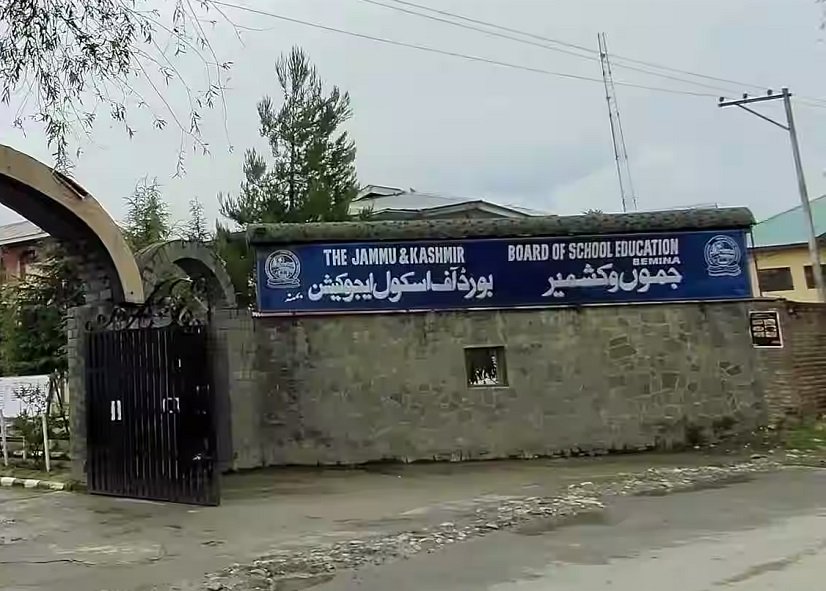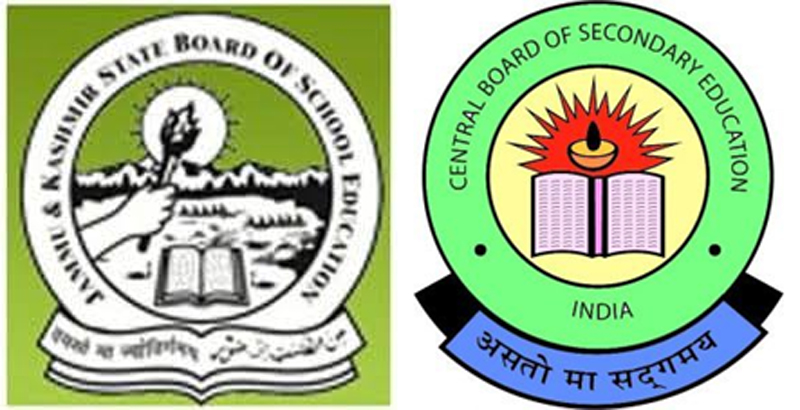Four private schools in Jammu & Kashmir are set to lose their affiliation, and eight others have been fined for violating JKBOSE textbook norms, as per SRO 123 guidelines.
A Wake-Up Call for Private Schools
Education is often described as the backbone of society. In Jammu & Kashmir, where schooling is both a lifeline and a contested space, the Jammu & Kashmir Board of School Education (JKBOSE) has taken a bold step to protect academic integrity. Four private schools have lost their affiliation, and eight others have been fined, for violating textbook guidelines under SRO 123.
This crackdown is not just about books — it’s about trust, fairness, and the future of thousands of students. By enforcing strict compliance, JKBOSE is sending a clear message: education cannot be commercialized at the cost of children’s futures.
What is SRO 123 and Why It Matters
SRO 123 is a statutory regulation that requires all JKBOSE-affiliated schools to use only textbooks prescribed by the Board. These books are:
- Developed by panels of subject experts.
- Aligned with the National Curriculum Framework (NCF).
- Designed to ensure uniformity, affordability, and quality.
The regulation was introduced to stop private publishers from infiltrating classrooms with costly, inconsistent, or ideologically skewed content. By mandating JKBOSE textbooks, the government ensures that every child — whether in Srinagar or Rajouri — studies the same curriculum.
Schools Losing Affiliation
The following schools were found in gross violation of SRO 123 and will lose their JKBOSE affiliation:
- ———
- ———
- ———
- ———
These institutions prescribed private publications across multiple grades, undermining JKBOSE’s authority and risking students’ exam preparedness. Losing affiliation means they cannot operate under JKBOSE’s framework, a severe penalty that impacts admissions, credibility, and recognition.
Schools Fined
Eight schools were fined up to ₹50,000 for partial violations:
- ———
- ———
- ———
- ———
- ———
- ———
- ———
- ———
These schools used private books in select subjects or grades. While not as severe as full affiliation loss, the fines serve as a warning: repeat violations will invite harsher penalties.
Ground Reports: What Inspections Revealed
JKBOSE inspection teams conducted surprise visits across districts. They checked:
- Classroom materials.
- Booklists issued to parents.
- Teacher records.
Findings included:
- Private publishers replacing JKBOSE books in science and mathematics.
- Parents pressured to buy expensive private publications.
- Teachers instructed to follow non-standard syllabi.
Such practices not only violate SRO 123 but also create inequality — students from poorer families struggle to afford private books, while exam preparation suffers due to syllabus mismatch.
Voices from the Field
- Teachers: Some welcomed the crackdown, saying it restores fairness. Others argued JKBOSE must improve distribution and update editions.
- Parents: Many expressed relief at reduced costs. “We were paying thousands for private books. JKBOSE books are affordable,” said a parent from Kupwara.
- Students: Confusion was common. “We studied from private books, but exams are based on JKBOSE syllabus. It was unfair,” said a Class 10 student in Pulwama.
Legal and Ethical Implications
The High Court of Jammu & Kashmir has upheld SRO 123, reinforcing that private schools must comply. Violations:
- Risk students’ academic futures.
- Undermine state education policy.
- Invite penalties, including fines and affiliation cancellation.
Ethically, schools are entrusted with shaping young minds. Prescribing unauthorized books for profit is seen as a betrayal of that trust.
What This Means for Students and Parents
- Uniform curriculum: All students will study the same syllabus, reducing confusion.
- Affordable education: JKBOSE books are priced lower than private publications.
- Exam alignment: Board exams are based on JKBOSE content, ensuring fairness.
- Reduced exploitation: Parents won’t be forced into unnecessary expenses.
JKBOSE’s Future Roadmap
The Board plans to:
- Digitize textbooks for easy access.
- Conduct regular audits of schools.
- Launch awareness campaigns for parents.
- Penalize repeat offenders more strictly.
Compliance Checklist for Schools
To avoid penalties, schools must:
- ✅ Use only JKBOSE-prescribed textbooks.
- ✅ Issue booklists approved by the Board.
- ✅ Train teachers on JKBOSE curriculum.
- ✅ Avoid private publishers unless explicitly permitted.
- ✅ Maintain transparency with parents.
Parent Guidelines: What To Do If You Face Harassment or Have Concerns
1. Know Your Rights
- SRO 123 compliance: Schools must use only JKBOSE‑prescribed textbooks.
- Fee transparency: Schools cannot force parents to buy costly private publications.
- Affiliation rules: If a school is JKBOSE‑affiliated, it must follow Board guidelines strictly.
2. Document Everything
- Keep receipts of book purchases, fee slips, and circulars.
- Save WhatsApp messages or notices where schools demand private books.
- Note dates, names, and details of any harassment or pressure.
3. Raise Concerns Formally
- Step 1: Approach the school principal in writing. Request clarification politely but firmly.
- Step 2: If unresolved, escalate to the JKBOSE regional office. Attach copies of evidence.
- Step 3: You can also approach the District Education Officer (DEO) for intervention.
4. Collective Action
- Parents are stronger together. Form a small group or parent association to raise issues collectively.
- Collective complaints carry more weight and reduce the risk of individual targeting.
5. Seek Legal Support if Needed
- If harassment continues, consult a local lawyer familiar with education law.
- The High Court has upheld SRO 123 — meaning parents have legal backing.
6. Stay Calm, Professional, and Respectful
- Avoid confrontations in front of children.
- Keep communication polite but assertive.
- Frame your concern around student welfare and fairness, not personal disputes.
Quick Checklist for Parents
- ✅ Verify if your child’s school is JKBOSE‑affiliated.
- ✅ Ensure only JKBOSE textbooks are prescribed.
- ✅ Keep written records of all communication.
- ✅ Escalate concerns step by step (School → JKBOSE → DEO).
- ✅ Act collectively with other parents.
- ✅ Seek legal recourse if harassment persists.
FAQs for Parents
Q1: Can a school force me to buy private books? No. If it’s JKBOSE‑affiliated, it must follow SRO 123 and prescribe only Board books.
Q2: What if the school says JKBOSE books are “low quality”? That’s not a valid excuse. JKBOSE books are aligned with the National Curriculum Framework and legally mandated.
Q3: How do I complain to JKBOSE? Submit a written complaint with evidence to the regional JKBOSE office or email their grievance cell.
Q4: Will my child suffer if I refuse private books? No. Board exams are based on JKBOSE textbooks. Using private books may actually disadvantage your child.
Q5: Can a school force me to buy private books? No. If it’s JKBOSE‑affiliated, it must follow SRO 123 and prescribe only Board books.
Q6: Why did JKBOSE take such strict action? Because schools were violating SRO 123, risking curriculum integrity and student futures.
Q7: Can schools use private books for reference? Yes, but only as supplementary material — not as prescribed textbooks.
Q8: What happens if a school repeats violations? They risk losing affiliation permanently and facing higher fines.
Q9: How does this benefit parents? It reduces costs, ensures exam alignment, and protects children from exploitation.
Q10: Are JKBOSE books updated regularly? Yes, the Board revises textbooks in line with the National Curriculum Framework.
In essence: Parents have the right to demand fairness, affordability, and compliance. Harassment or pressure from schools is not acceptable — and JKBOSE regulations give you the backing to raise concerns confidently.
Bottom-Line: A Lesson in Accountability
The JKBOSE crackdown is more than an administrative action — it’s a reminder that education is a public trust, not a private commodity. By enforcing SRO 123, the Board is protecting students, supporting parents, and ensuring fairness across Jammu & Kashmir.
For schools, the message is clear: comply or face consequences. For families, it’s reassurance that the system is working to safeguard their children’s futures.


